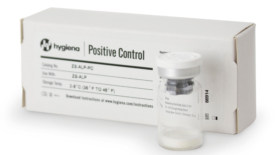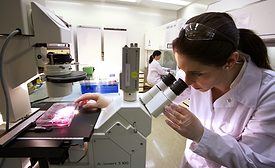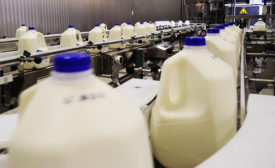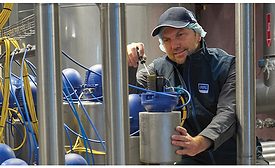Home » Keywords: » dairy food safety
Items Tagged with 'dairy food safety'
ARTICLES
A collaborative effort to help small dairy manufacturers meet safety guidelines
A recently launched Wisconsin food safety program is designed to help small artisan dairy manufacturers meet FSMA guidelines
August 10, 2018
The importance of environmental swabbing
A robust environmental swabbing program will greatly help dairy processors in ensuring the prime directive: public health.
June 12, 2018
Take a proactive approach to reduce recall risks
By putting the right programs and procedures in place, dairy facilities could help prevent cross-contact and contamination that lead to costly recalls.
March 14, 2018
Best practices for maintaining hygienic design
A look at key considerations to help identify and control equipment-related food safety hazards during maintenance operations.
December 8, 2017
Maximize efficiency and food safety in a dairy plant
Equipment producers explain how to optimize heat exchanger and homogenizer performance.
October 11, 2017
A comprehensive environmental monitoring program can mitigate your recall risk
A comprehensive environmental monitoring program is the best ammunition in the fight against potential pathogen-related food recalls.
October 11, 2017
Verifying the integrity of hygienic equipment design
Processors need to know that the policies and procedures they’re using are sufficient to guarantee the integrity of hygienic equipment design.
August 10, 2017
Reducing safety risks in dairy products
The industry is focusing on developing new processes and technologies that have a significant impact on safety but a minimal impact on the product.
August 8, 2017
Here’s what to know now about hygienic equipment design fundamentals
With looming deadlines and extensive requirements, now is the time to get hygienic equipment design training for virtually everyone involved in food processing operations.
May 11, 2017
Never miss the latest news and trends driving the food safety industry
eNewsletter | Website | eMagazine
JOIN TODAY!Copyright ©2025. All Rights Reserved BNP Media.
Design, CMS, Hosting & Web Development :: ePublishing






